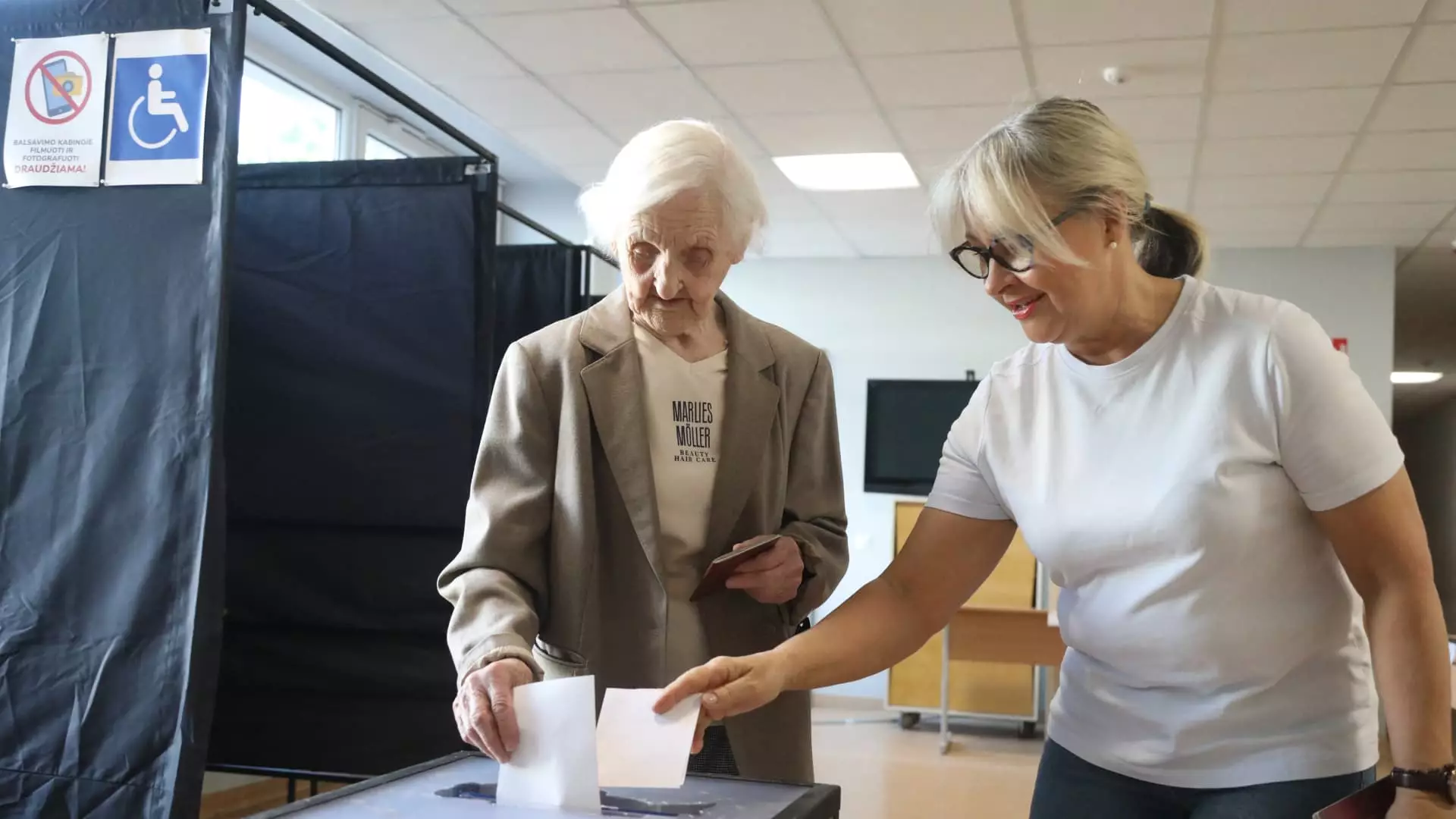Lithuania is heading into presidential elections with incumbent Gitanas Nauseda looking to secure another term in office. The campaign leading up to the elections has been largely focused on security concerns in the country, particularly in the wake of Russia’s invasion of Ukraine in 2022. With the Baltic nation being a strong ally of Ukraine, there is growing apprehension about the possibility of being Moscow’s next target. Nauseda, a former economist with Swedish banking group SEB, emerged as the frontrunner after winning the first round of the elections in May with 44% of the votes.
In the upcoming run-off, Nauseda will be facing Prime Minister Ingrida Simonyte, who represents the ruling centre-right Homeland Union party. Simonyte, who came in second in the initial round of voting, is looking to challenge Nauseda with her pro-European and pro-Western stance. Both candidates have expressed support for increasing defence spending in an effort to bolster national security, with Nauseda advocating for a rise to at least 3% of Lithuania’s GDP. However, the candidates differ on certain social issues, such as the recognition of same-sex civil partnerships. Nauseda has been vocal about his opposition to legalizing such unions, citing concerns about the sanctity of traditional marriage.
The prevailing sentiment among Lithuanians is one of unease, with over half of the population believing that a Russian attack is a possible or even likely scenario. Nauseda has explicitly referred to Russia as an enemy, emphasizing the need to resist any attempts at destabilizing the political landscape. Both candidates are committed to upholding Lithuania’s partnership with NATO and the EU, highlighting the importance of maintaining a pro-Western stance in the face of external threats.
The Lithuanian presidency holds a significant role in shaping the country’s foreign and security policies, in addition to overseeing key governmental functions. The president chairs important national security bodies, commands the armed forces, and represents the nation at international summits. Moreover, the president wields veto power over legislation and participates in the appointment of key officials, underscoring the influence they have in shaping the country’s trajectory.
As the Lithuanian population gears up for the presidential elections, the focus on national security and external threats looms large. The choice between Nauseda and Simonyte represents not only a decision about leadership but also a reflection of the country’s values and priorities moving forward. Ultimately, the outcome of the elections will have far-reaching implications for Lithuania’s place on the global stage and the direction it takes in the coming years.


Leave a Reply